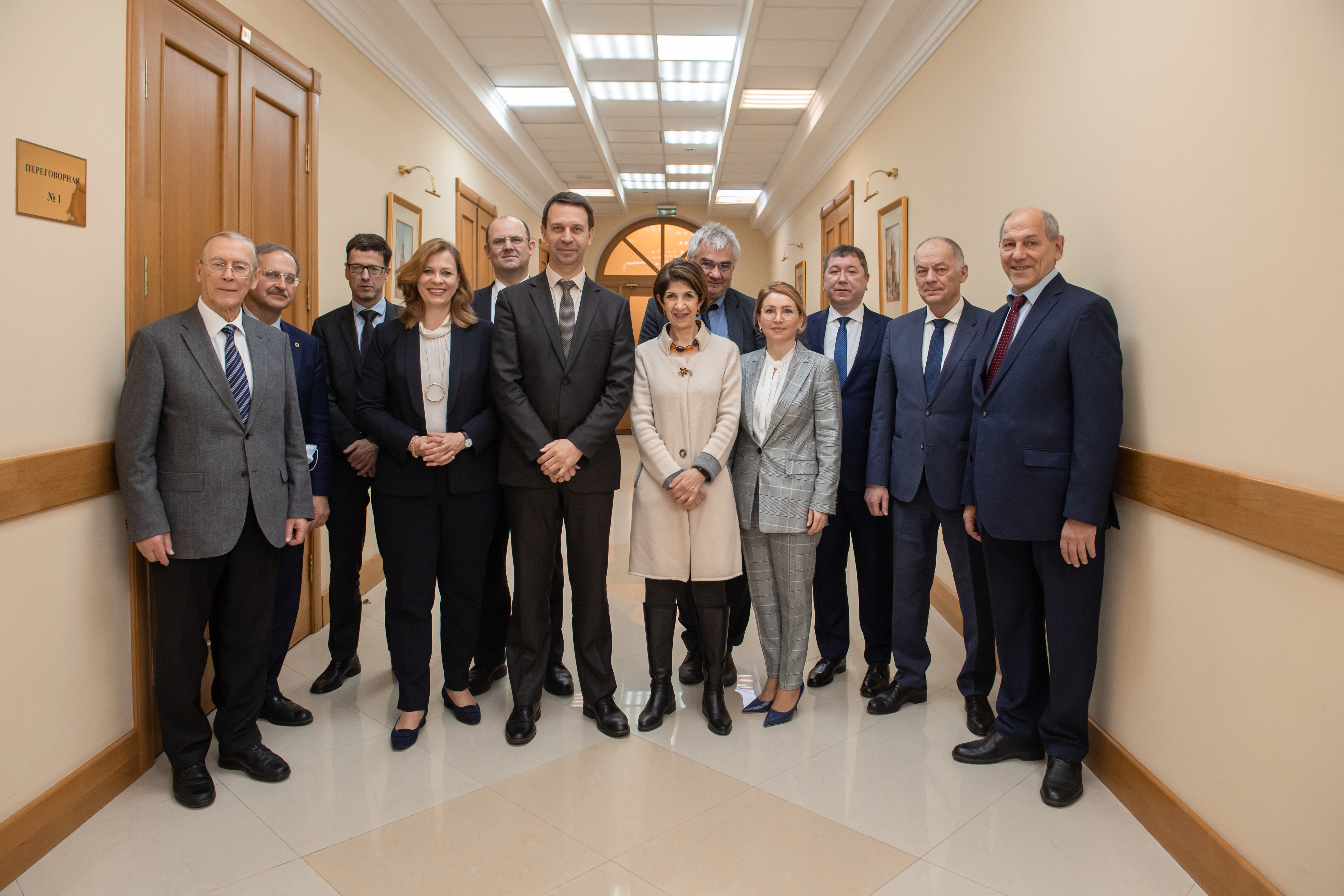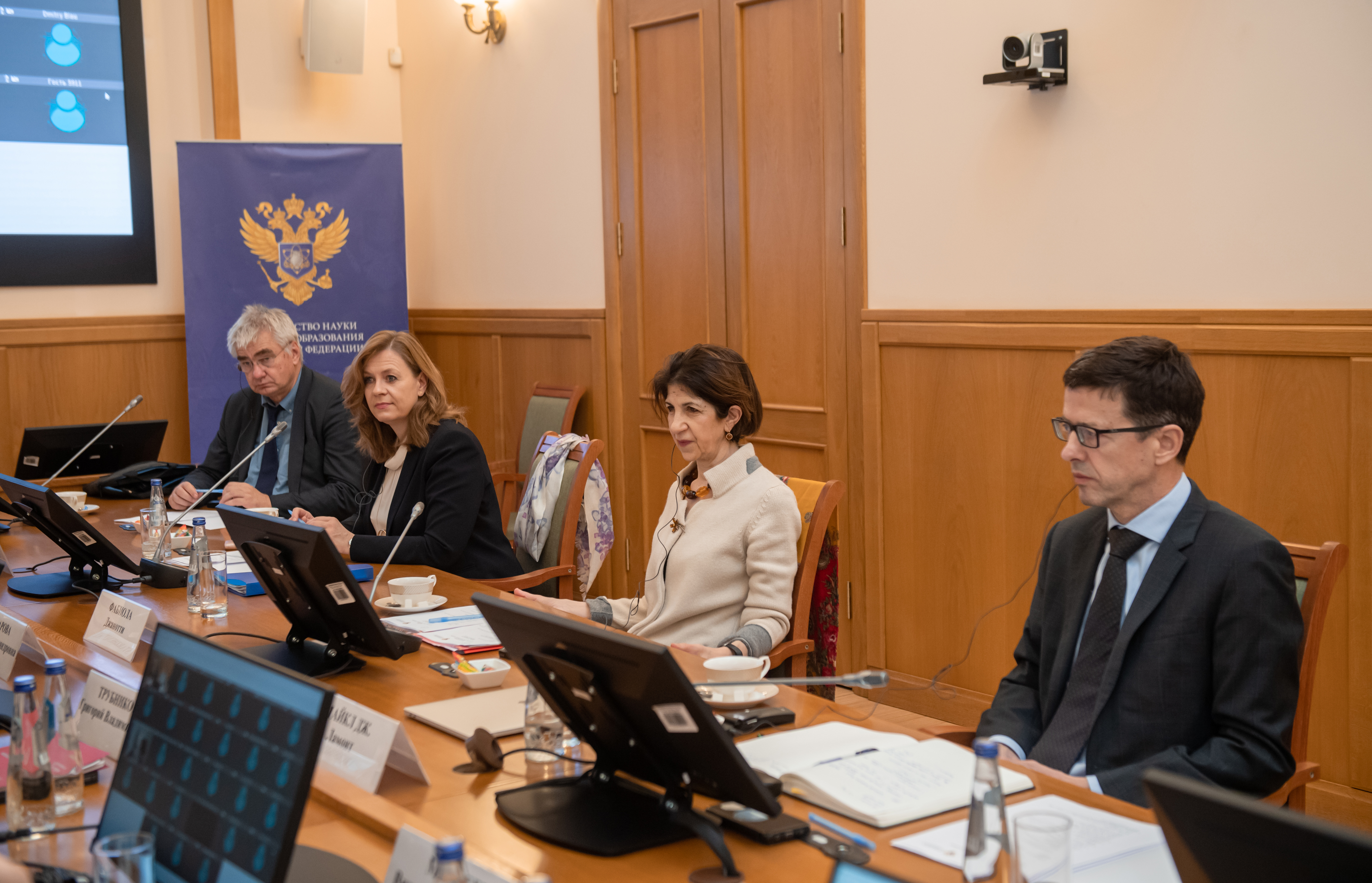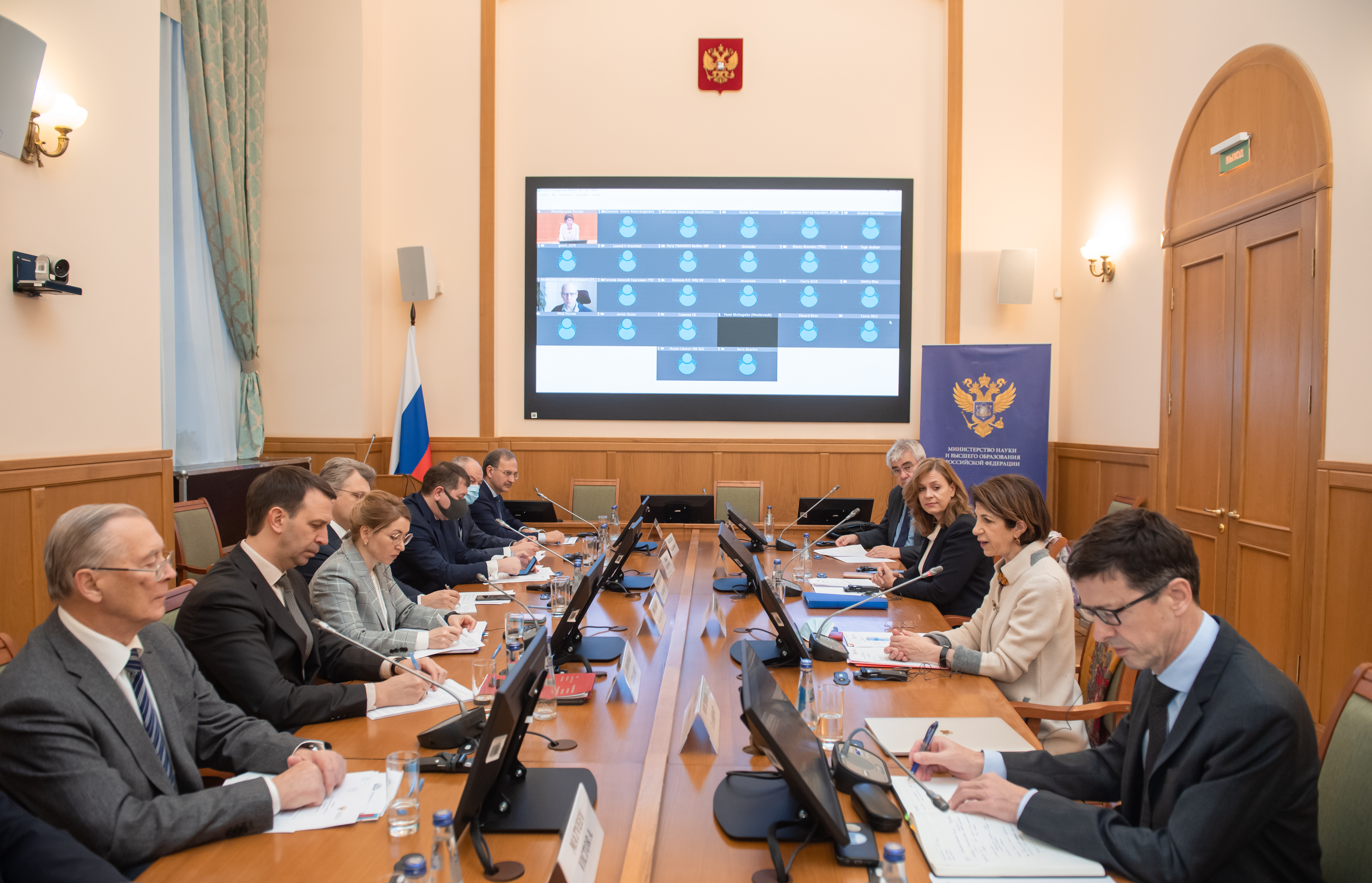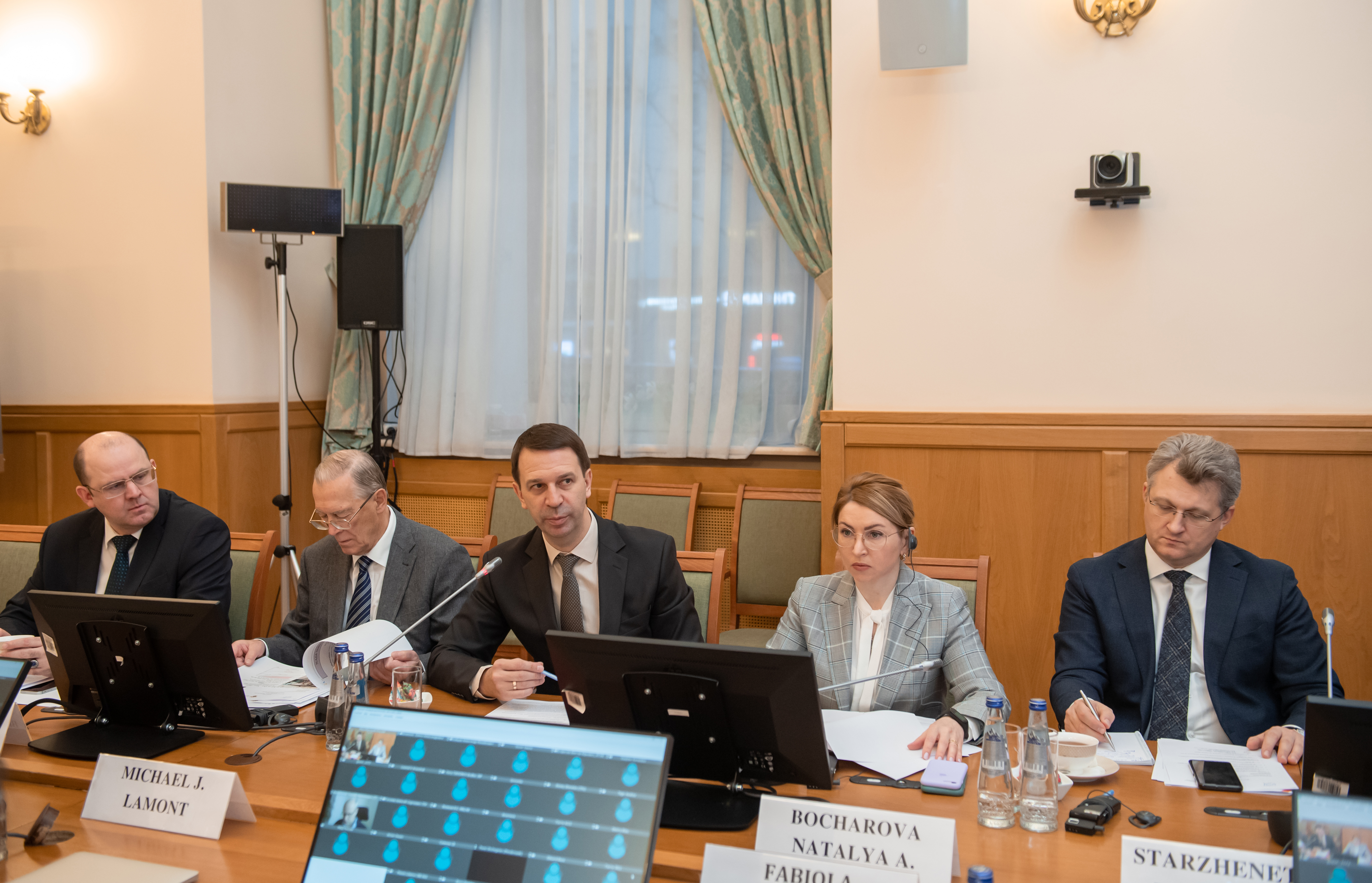Meeting of CERN-Russia Committee held
News, 29 November 2021
The event became the 44th in a row and was held on the platform of the Ministry of Science and Higher Education of the Russian Federation. The key topics of discussion were the current status of CERN experiments and the participation of the Russian party in them. One of the new elements in the joint agenda was the discussion of the Russian Federation’s programme Priority 2030 and the growing participation of Russian universities in the CERN programmes.
CERN Director-General Fabiola Gianotti headed the delegation of the European Organization for Nuclear Research. Representatives of Russian departments, scientific and educational institutions took part in the event on behalf of the Russian Federation together with Deputy Minister of Science and Higher Education of Russia Natalia Bocharova. By order of Minister of Science and Higher Education of Russia Valery Falkov, JINR Director Grigory Trubnikov headed the Russian party of the CERN-Russian Federation 5+5 Committee.
Fabiola Gianotti together with her colleagues presented the current status of the CMS, ATLAS, LHCb, ALICE experiments. Russian scientists, as well as JINR researchers, are developing and improving various subsystems for accelerators and detectors of these four experiments. The parties highlighted the wide participation of Russian physicists in the NA64 experiment at CERN aimed to search for physics beyond the Standard Model. The Joint Institute also takes an active part in it. In particular, JINR Scientific Leader Victor Matveev said about it in his speech. Following the discussion, the Russian party confirmed its readiness to continue active participation in the LHC upgrade and in the second phase of the detector development.
Moreover, the Institute in the agenda was represented in the discussion of the GRID digitalisation for the CERN experiments. Thus, MLIT JINR Director Vladimir Korenkov said that the Institute is developing the Tier1 centre for CMS and the Tier2 centre for other virtual organizations at the LHC. Moreover, JINR is actively working on the EOS data storage system for all the experiments.
“I hope that we will continue further cooperation with the Russian Federation on colliders, detectors, and accelerators,” CERN Director-General Fabiola Gianotti highlighted. “Colliders are a fundamentally important field for us but the study of physics beyond the Standard Model is also significant. We will cooperate in all areas, from superconductors to accelerators, muon colliders, and other developments.” It should be reminded that in 2019, Fabiola Gianotti became a laureate of the JINR B. M. Pontecorvo Prize for the leading contribution to the experimental studies of fundamental interactions and the discovery of the Higgs boson.
“We are happy that scientific and educational institutions of our country are full members of the world scientific community,” Grigory Trubnikov noted. “I think that all this is a kind of building blocks of the CERN-Russia bridge.” Noting that UNESCO has declared 2022 the Year of Basic Sciences for Sustainable Development, the Director of the Joint Institute stressed out that CERN, the international centre in Dubna, and many Russian scientific organizations would be its active partners.
The next meeting of the CERN-Russia Committee is preliminarily scheduled for spring 2022 at CERN.
Photos by Ministry of Science and Higher Education of Russia



